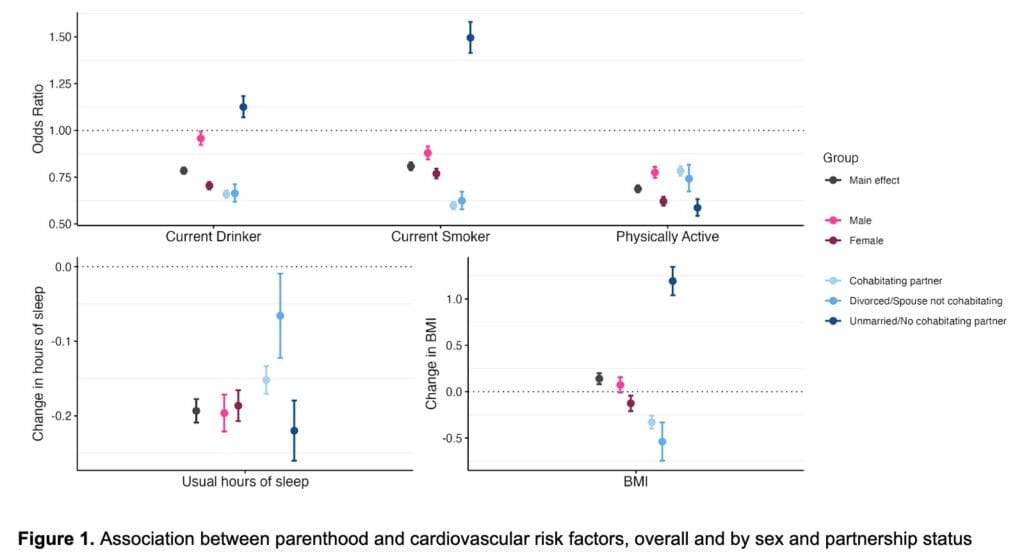Social
Unequal burdens of parenthood: Heterogeneity in cardiovascular risk factors among parents Whitney Wells* Whitney Wells Fan Xia Jacqueline M. Torres Rita Hamad Anusha M. Vable
Background: For the 28 million parents of young children in the U.S., the demands of parenthood can increase time pressure and financial stress, prevent health maintenance, and potentially impact health into midlife. Health challenges related to parenthood likely vary by sociodemographic context, but evidence on heterogeneity is limited.
Method: We used the National Health Interview Survey (NHIS) 2000-2018 waves to examine the relationship between parenthood and five self-reported cardiovascular disease risk factors: physical activity, alcohol use, smoking, sleep duration, and body mass index (n=151,765 parents, n=375,220 non-parents). We adjusted for sociodemographic factors, year, and region, and examined effect modification by sociodemographic factors.
Results: Parents (compared to non-parents) had lower odds of being physically active (OR: 0.69; 95% Confidence Interval [CI]: 0.67, 0.71), higher BMI (ꞵ: 0.14; 0.08, 0.20), and fewer hours of sleep per night (ꞵ: -0.19; -0.21, -0.18). Parents also had lower odds of being a current drinker (OR: 0.78; 95% CI: 0.77, 0.80) or current smoker (OR: 0.81; 95% CI: 0.79, 0.83). We observed heterogeneity across all outcomes by sex, race and ethnicity, income, and relationship status (p-values for interaction <0.05). In stratified results, the most pronounced differences were by sex (women had greater decreases in physical activity but also in drinking, smoking, and BMI) and by partnership status (those unmarried or without cohabitating partners had greater increases in drinking, smoking, and BMI) (Figure 1).
Conclusion: While U.S. parents have lower use of alcohol and smoking, they also have worse physical activity, BMI, and sleep vs non-parents. Parents may feel increased pressure to reduce unhealthy behaviors, but may also face structural challenges in maintaining cardiovascular health, particularly single parents. Family support policies to alleviate time and financial pressures may be crucial in supporting parents’ health.

